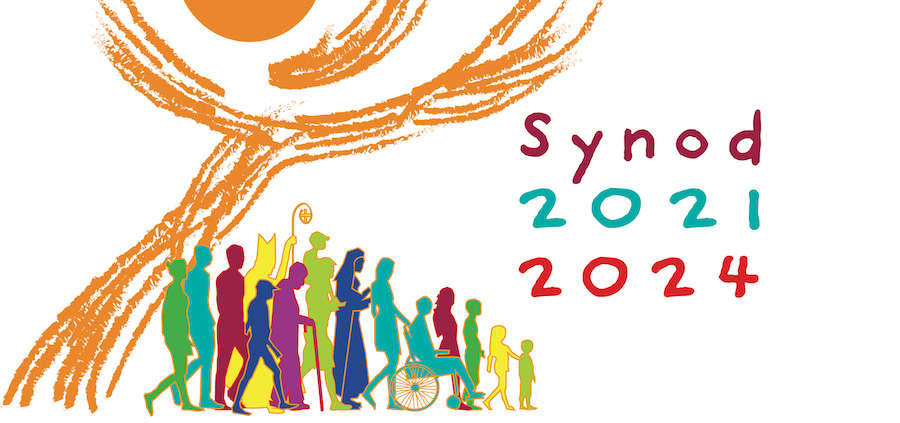A United Witness: Synod Report for October 26, 2023
The General Congregation of the Synod released its “Letter to the People of God” yesterday afternoon. The three-page document was not intended as a comprehensive summary of the synodal proceedings, but rather a means of communicating the positive contributions of the Synod to rest of the church.
“In many ways [the Synod] has been an unprecedented experience,” the letter states. “For the first time, at Pope Francis’ invitation, men and women have been invited, in virtue of their baptism, to sit at the same table to take part, not only in the discussions, but also in the voting process of this Assembly of the Synod of Bishops.”
The letter acknowledges the “importance of fostering mutual exchanges between the Latin tradition and the traditions of Eastern Christianity.” During the ecumenical prayer vigil that opened the Synod on September 30, delegates “experienced how the thirst for unity increases in the silent contemplation of the crucified Christ.”
“In fact, the cross is the only cathedra of the One who, having given himself for the salvation of the world, entrusted His disciples to His Father, so that ‘they may all be one,’” the letter continues.
The theme of ecumenism was carried forth today at a press briefing with Cardinal Kurt Koch, prefect of the Dicastery for Promoting Christian Unity; Archbishop Stanisław Gądecki of Poznań, Poland; Metropolitan Iosif, Romanian Orthodox Metropolitan of Western and Southern Europe; Rev. Dr. Opoku Onyinah, former president of the Church of Pentecost, Ghana; and Dr. Catherine E. Clifford, professor of systematic and historical theology at Saint Paul University, Ottawa.
Displaying a copy of Listening to the East: Synodality in the Oriental and Occidental Tradition recently published by Libreria Editrice Vaticana, Cardinal Koch said that the Orthodox churches have a rich tradition of synodality and collegiality.
“Synodality always has a liturgical dimension,” he said. “We must journey together, pray together, and cooperate.”
Cardinal Koch said there is “a mutualism between ecumenism and synodality” and that “ecumenism was born as a missionary movement.” This means that unity is not a goal in itself, but a means of more effectively announcing the gospel.
“When we are not united, our mission is not credible,” he said. “Mission and ecumenism go together.”
Metropolitan Iosif said that “as an Orthodox church, we are very happy to be part of this [synodal] process.” Both Metropolitan Iosif and Rev. Dr. Onyinah are attending the Synod as fraternal delegates, meaning that they are invited to participate in the discussions but do not cast votes. Fraternal delegates from four major Christian traditions are participating in the Synod. These include the Orthodox Church, the Oriental Orthodox Churches, the Mainline Protestant Churches, and the Free Churches.
Metropolitan Iosif added that ecumenical dialogue often happens at the grassroots level, particularly among interfaith families. “Very often, [families] give us the solutions” for how to develop ecumenism, he said.
Rev. Dr. Onyinah said that he feels the Synod is “an excellent attempt to break barriers of division” between churches, and that it is an “appropriate” model for other churches to follow.
Dr. Clifford followed with a brief historical overview of ecumenical initiatives in the Catholic Church over the past 30 years, including texts such as the Ravenna Document of 2007 and Pope John Paul II’s encyclical letter Ut unum sint (“That they may be one”) from 1995.
Dr. Clifford also highlighted the importance of a “receptive ecumenism” between and among the churches. This involves “learning from one another’s best practices” so that “we might better live the gospel.”
“Humanity has need of our united witness,” she said, which can be “a prophetic sign in a divided world.”
Delegates are continuing discussions of the synthesis report that will be released on Saturday. Yesterday Pope Francis made news when he intervened in the discussions to denounce “the scorn, mistreatment, and marginalization of institutionalized clericalism.”
“It is enough to go into the ecclesiastical tailor shops in Rome to see the scandal of young priests trying on cassocks and hats, or albs and lace robes,” he said. He referred to clericalism as “a scourge” and “a form of worldliness that defiles and damages the face of the Lord’s bride.” ♦
Michael Centore
Editor, Today’s American Catholic




Leave a Reply
Want to join the discussion?Feel free to contribute!